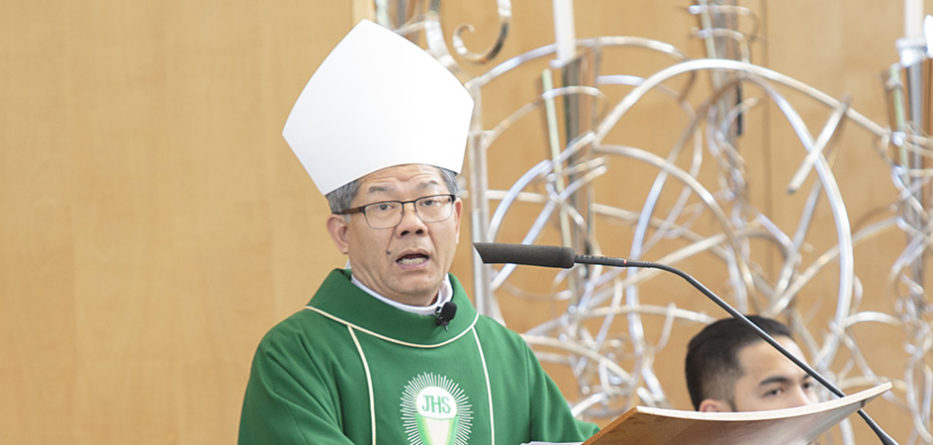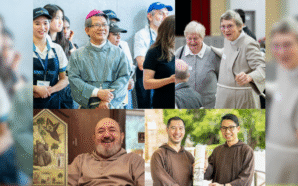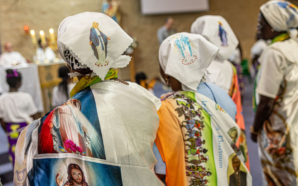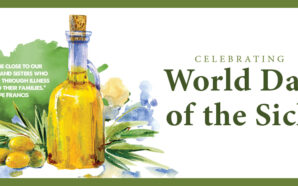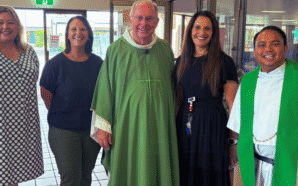Most Reverend Vincent Long Van Nguyen OFM Conv DD STL, Bishop of Parramatta
Homily for the 20th Sunday in Ordinary Time, Year B
Readings: Proverbs 9:1-6; Ephesians 5:15-20; John 6:51-58
18 August 2024
Acting out the compassion and generosity of our Eucharistic God
Brothers and sisters in Christ,
We live in one of the safest and wealthiest countries in the world. This should not insulate us from the suffering of our fellow human beings. We know all too well about some of the brutal conflicts such as the war in the Holy Land, and the war between Ukraine and Russia. But there are many more that are not so well-known – Sudan, Myanmar, West Papua to mention just a few. Yet, whether we know about these conflicts or not, the consequences for our fellow human beings are just as devastating, just as lethal, for little children, their parents and their grandparents.
Regardless of their background and circumstances, we are challenged to see them as our suffering brothers and sisters. Whether they are Gazans or Israelis, Buddhists or Muslims, our commitment as Christians is to see Christ in them. For the core belief of Christianity is God dwelling in each and every of his suffering children.
The Word of God this Sunday speaks of the God who draws all people into a communion of love and fellowship in Christ. In the first reading, the Book of Proverbs compares God to a generous hostess who throws a feast of fine wine and sumptuous food. She sends out the servants to invite “the ignorant and the fool”, so that they will be filled with God’s wisdom and “walk in the way of perception”. This hostess, therefore, foreshadows the way Jesus reaches out to the poor, the humble, the dispossessed, the hungry and the oppressed of the world. We think of the meals Jesus eats with the ordinary and the unworthy. We are also reminded of the parable of the wedding banquet where the Master tells the servants to go out to the streets and invites the poor, the crippled, the lame and the blind.
In the Gospel story which follows the miracle of the loaves and fishes, Jesus challenges the people to look beyond their daily preoccupations and immediate concerns. He points them to the deeper level of human living and flourishing, which is made possible not through the self-centred and survival-oriented behaviour but through the self-giving love made manifest in his own life.
This fundamental teaching of Christ is already implicit in the feeding of the multitude. The miraculous meal was not just a stopgap measure and a temporary relief to a group of individuals. It was meant to foreshadow the divine hospitality and abundance of the kingdom. So much so that those who partake of God’s meal have to rise to a new level of living the divine generosity and fidelity. They must meet the need of others with God’s gift of abundance. In the words of Mary McKillop, we cannot see a need and remain indifferent to it. Those who share God’s Eucharistic gift of self-giving love must respond with the generosity and compassion of God shown in Christ.
“The bread I shall give is my flesh for the life of the world.” These words of Jesus sum up the meaning of his mission and challenge us to do the same. For wherever he went and whatever he did, he manifested God’s abundant and limitless love, especially to the poor and the vulnerable. In his words and actions, Jesus made present the radical embrace of God; he pushed the boundaries of our acceptance, inclusion and love. His ultimate act of self-offering on the cross was the climax of God’s radical embrace. We can therefore only be true to our Eucharistic identity when we recreate Jesus’ self-giving love for others.
Dear friends,
The early Christians understood the significance of being fundamentally counter-cultural in how they lived, how they related, how they welcomed outsiders and shared resources with the disadvantaged. They understood the meaning of the Eucharist which is to become the Christ we have consumed.
In the second reading, Paul exhorts the Ephesians to be filled with the Spirit and to live their Spirit-filled lives accordingly. This is an invitation to embrace a life of faith, hope and love based on the teachings and examples of Christ. It is also a clarion call to set themselves apart from the ruthless, dog-eat-dog world around them. Similarly, we are challenged to be a kinder, more inclusive, more caring alternative society under God’s rule.
To eat his flesh and to drink his blood is to participate in his life-giving death and resurrection. The Eucharist commits us to be Christ’s transforming presence in the world. For like him, we must suffer with others, be vulnerable with the vulnerable, be last with the least and be powerless with those without power. St Jerome long ago said: “If you cannot find Christ in the beggar at the Church door, you will not find Him in the chalice.” Indeed, communion with the poor is the pathway to God. As we partake of the bread that is the body of Christ, we are meant to transform into a life-giving force for our suffering brothers and sisters. May we truly be guided by his example of radical love. May we who have been shown immeasurable love in Christ be the compassionate face of God to the unloved, the excluded, the disadvantaged and the dispossessed in order to bring them to the table of the Lord.




